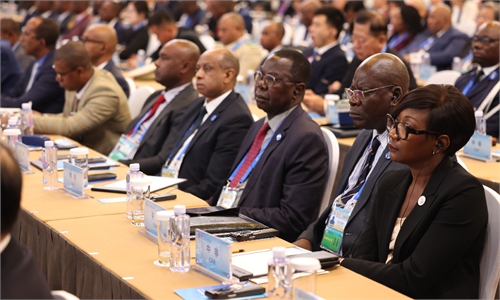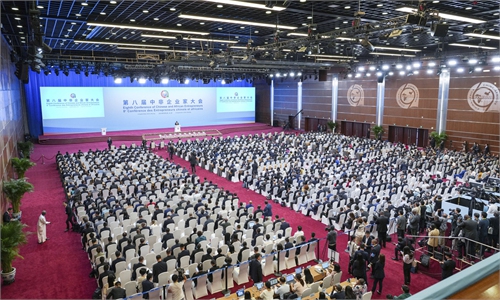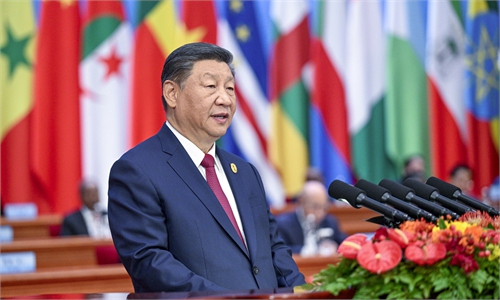
A visiting meteorological scholar from Seychelles participates in meteorological forecasting operations at China's National Meteorological Center in August 2024. Photo: Official WeChat account of China Meteorological Administration
China and Africa have deepened meteorological cooperation to enhance their climate change response and disaster risk reduction capabilities, achieving fruitful results in recent years, under the Forum on China-Africa Cooperation (FOCAC) and the Belt and Road Initiative (BRI) frameworks.
China has implemented meteorological infrastructure projects in several African countries, including Zimbabwe, Kenya and Namibia. These projects include establishment of automatic observation stations, and data reception and processing systems for the Fengyun-3G, a satellite dedicated to measuring precipitation on Earth, according to the China Meteorological Administration (CMA).
The CMA has initially established an early warning service platform designed for developing countries and regions. It plans to collaborate with more African countries to jointly develop and construct meteorological early warning service platforms, utilizing services such as China's Fengyun-3G, aiming to strengthen disaster prevention and climate change response capabilities in Africa, according to the CMA.
Establishing meteorological early warning systems has been included in the 10 partnership actions for modernization proposed by China to deepen China-Africa cooperation.
Meanwhile, visiting meteorological scholars from BRI countries have recently participated in meteorological exchange and cooperation between China and Africa, according to the CMA.
Limited meteorological observation capabilities hinder effective responses to climate change and the management of weather-related disasters in Africa, said Ma Jun, director of the Beijing-based Institute of Public and Environmental Affairs.
It requires improved access to data, monitoring, forecasting, and early warning systems, to strengthen the adaptation capabilities to climate change in Africa, especially given the rising frequency of extreme weather events, Ma said.



